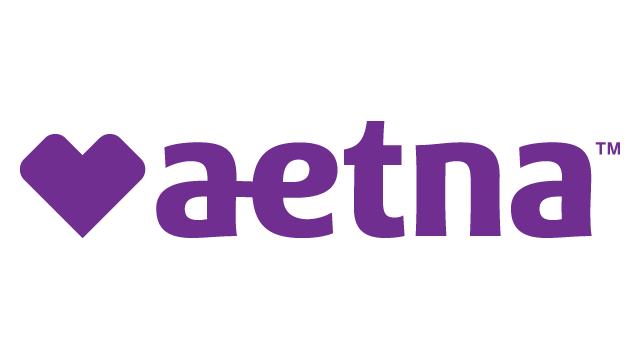CPT 99359 Fee Schedule
Healthcare providers use this code to document and receive reimbursement for visits that address moderate-level medical decision-making, often including multiple diagnoses or prescription management.
| Key Fact | Detail |
|---|---|
| Service Type | • Evaluation and Management • Prolonged Services |
| Common Place of Service | • 11 - Office • 21 - Inpatient Hospital • 22 - On Campus Outpatient Hospital |
| Common Modifiers | • None • 25 - Significant, separately identifiable E/M service same day • Q5 - Service furnished by a substitute physician under a reciprocal billing arrangement |
| Complexity Level | Low |
| Medicare Fee Schedule | View Medicare rates for 99359 |
National average reimbursement for CPT 99359 by major payers:

$60.67

$63.48

$59.14

$73.51
| Payer | Code | Rate | NPI | Tax ID | State | Specialty |
|---|---|---|---|---|---|---|
Select a payer to view fee schedule data Choose a payer from the options above to see rates for CPT 99359 | ||||||
United | 99359 | $58.36 | 1801392014 - ANUSHA JOGIMAHANTI | 931496969 - (TX) LONE STAR RENAL PA | TX | Internal Medicine Physician (207R00000X) |
United | 99359 | $50.02 | 1790874089 - HECTOR OYARZABAL | 851012672 | TX | Internal Medicine Physician (207R00000X) |
United | 99359 | $115.04 | 1932634326 - HANNAH MILLER | 541581185 - MCV ASSOCIATED PHYSICIANS | MA | Pediatrics Physician (208000000X) |
United | 99359 | $41.68 | 1376815910 - QINGGUO TAO, M.D., P.A. | 454384224 - (TX) QINGGUO TAO MD PA | TX | Internal Medicine Physician (207R00000X) |
United | 99359 | $106.16 | 1548450786 - HEMA ATLURI | 911947573 | TX | Internal Medicine Physician (207R00000X) |
United | 99359 | $54.72 | 1831352616 - PANKAJ SATIJA | 471970839 - (TX) PAIN AND HEADACHE CENTERS OF TEXAS PLLC | TX | Neurology Physician (2084N0400X) |
United | 99359 | $83.98 | 1255759098 - GABRIEL ORTIZ-VARELA | 300520570 - (TX) METHODIST HOSPITAL | TX | Internal Medicine Physician (207R00000X) |
United | 99359 | $105.76 | 1790741676 - SYED UMER | 203059260 - BHS PHYSICIANS NETWORK, INC | TX | Cardiovascular Disease Physician (207RC0000X) |
United | 99359 | $63.59 | 1013005875 - RALPHIE ROSARIO FELICIANO | 752660403 - (TX) HENDRICK PROVIDER NETWORK | TX | Internal Medicine Physician (207R00000X) |
United | 99359 | $95.59 | 1457538548 - PAUL BHELLA | 752536818 - HEALTHTEXAS PROVIDER NETWORK | TX | Cardiovascular Disease Physician (207RC0000X) |
United | 99359 | $106.41 | 1326079658 - PAMELA CRUZ | 752613493 - TEXAS HEALTH PHYSICIANS GROUP | TX | Internal Medicine Physician (207R00000X) |
United | 99359 | $124.19 | 1134195787 - JAMEILA HADDAWI | 43397450 - (MA) ATRIUS HEALTH, INC. | MA | Pediatrics Physician (208000000X) |
United | 99359 | $157.32 | 1376534404 - JESSICA MCGOVERN | 43496618 - (MA) MILTON PEDIATRIC ASSOCIATES, LLC | MA | Pediatrics Physician (208000000X) |
United | 99359 | $159.86 | 1699092304 - BILLY GAO | 941156581 - SUTTER BAY MEDICAL FOUNDATION | TX | Neurology Physician (2084N0400X) |
United | 99359 | $41.68 | 1457490286 - SURE CARE HEALTH ASSOCIATES PA | 203918670 - (TX) SURE CARE HEALTH ASSOCIATES PA | TX | Internal Medicine Physician (207R00000X) |
United | 99202 | $100.00 | 1234567890 | 1234567890 | CA | Cardiologist |
United | 99202 | $100.00 | 1234567890 | 1234567890 | CA | Cardiologist |
United | 99202 | $100.00 | 1234567890 | 1234567890 | CA | Cardiologist |
United | 99202 | $100.00 | 1234567890 | 1234567890 | CA | Cardiologist |
United | 99202 | $100.00 | 1234567890 | 1234567890 | CA | Cardiologist |
United | 99202 | $100.00 | 1234567890 | 1234567890 | CA | Cardiologist |
United | 99202 | $100.00 | 1234567890 | 1234567890 | CA | Cardiologist |
United | 99202 | $100.00 | 1234567890 | 1234567890 | CA | Cardiologist |
United | 99202 | $100.00 | 1234567890 | 1234567890 | CA | Cardiologist |
United | 99202 | $100.00 | 1234567890 | 1234567890 | CA | Cardiologist |
Want to see your competitors' rates?
Start your trial today to unlock complete access to provider rates and fee schedules in your area.
Here's what you can do with PayerPrice
Renegotiate your managed care contracts
Benchmark your current rates against market averages to identify opportunities for rate optimization.
Prospect for new business using fee schedules
Access every provider's negotiated rates for every billing code in your market to inform your prospecting strategies.
Integrate real-time payer data into your workflows
Automatically keep fee schedules up-to-date without adding yet another log-in to your insurance systems. Connect via API or SQL.
PayerPrice shows you the exact negotiated rates that insurers publish under federal transparency rules.
We display the raw data directly from insurers' files, giving you the same information they make public. Learn more about Price Transparency.
CPT 99359 vs. Other Prolonged Services Codes
The CPT 99359 code is part of the Evaluation and Management services used for Prolonged Services. It represents a moderate-complexity encounter and is one of several codes that vary based on time spent, level of medical decision-making, and documentation requirements.
The CPT 99359 code involves more provider time and moderate medical decision-making, unlike lower-level codes that require less time and simpler assessments. It typically includes multiple diagnoses, medication management, or test interpretation, leading to higher reimbursement and more detailed documentation requirements.
| Code | Complexity | Description |
|---|---|---|
| 99291-CPT | Moderate | Citical Care, Evaluation And Management Of The Unstable Critically Ill Or Unstable Critically Injured Patient, Requiring The Constant Attendance Of The Physician; Ist Hour |
| 99292-CPT | Low | Critical Care, Evaluation And Management Of The Critically Ill Or Critically Injured Patient; Each Additional 30 Minutes (List Separately In Addition To Code For Primary Service) |
| 99358-CPT | Low | Prolonged Evaluation And Management Service Beforeand/Or After Direct Patient Care; First Hour Eg Review Of Extensive Records And Tests Communication With Other Professionals And/Or The Patient/Family); First Hour (List Separately In Addition To Code(S) For Other Physician Service(S) And/Or Inpatient Or Outpatient Evaluation And Management Service) |
| 99359-CPT | Low | Prolonged Evaluation And Management Service Beforeand/Or After Direct Patient Care; Each Additional 30 Minutes (List Separately In Addition To Code For Prolonged Service) /Family); Each Additional 30 Minutes (List Separately In Addition To Code For Prolonged Physician Service) |
What is a fee schedule?
A fee schedule is a list of fixed prices that healthcare providers charge for specific services, including CPT 99359. These prices vary depending on payer type (Medicare, Medicaid, private insurance), geographic location, and provider contracts.
Understanding the 99359 fee schedule helps patients estimate costs and providers optimize billing for accurate reimbursements.
Factors that affect fee schedules
Medicare & Medicaid Rates
Government-set reimbursement amounts
Private Insurance Rates
Negotiated rates between providers and insurance companies
Geographic Location
Costs may be higher in urban areas.
Provider Type
Hospital providers may have different rates than private practice.
Let's review your payer contracts side-by-side with the market.
Bring your top codes (like CPT 99359) and we'll show you how you compare in 15 minutes or less.
